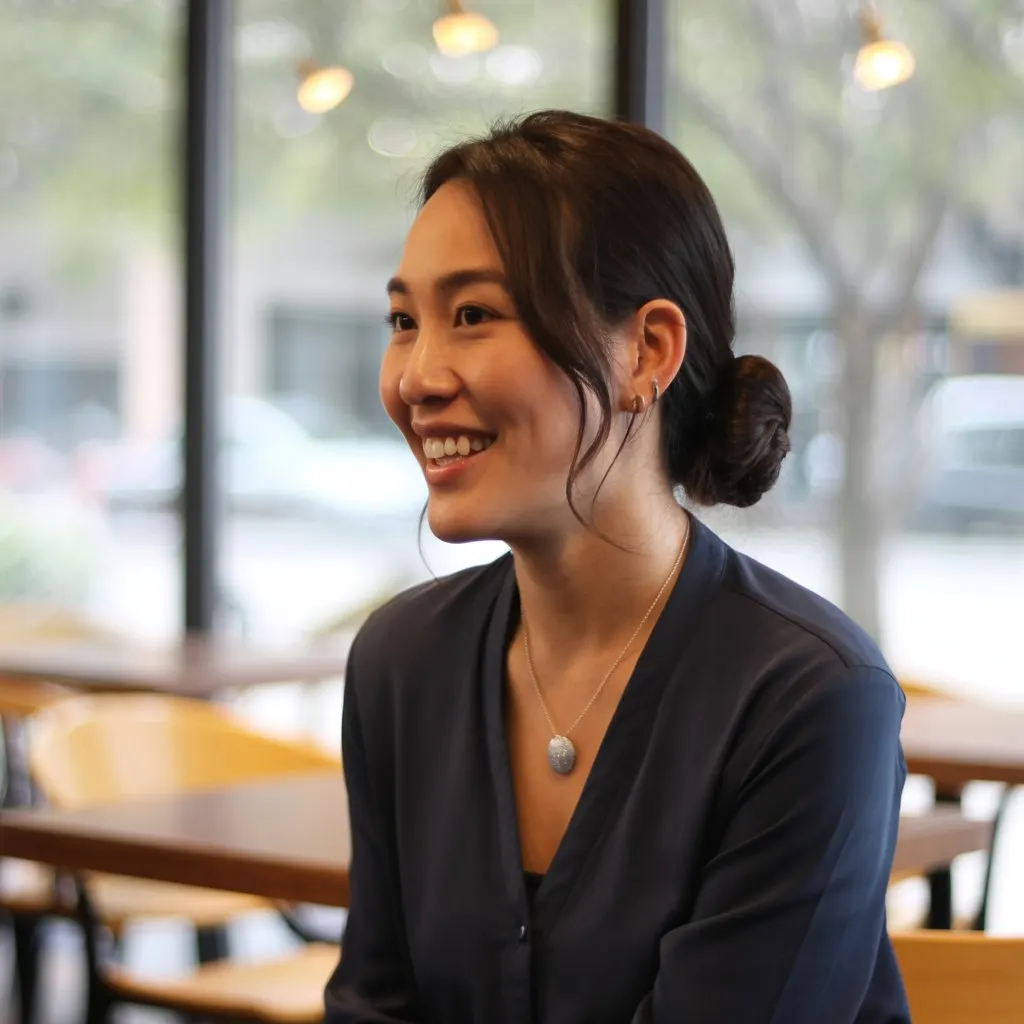If you’re reading this, chances are you understand that constant hum of worry that GAD brings. Maybe you’ve woken up with your mind already racing through worst-case scenarios, or perhaps you’ve felt that tightness in your chest that seems to have no clear cause. You’re not alone in this struggle, and I want you to know something important right from the start: seeking natural remedies for generalized anxiety disorder isn’t about rejecting medical help or admitting weakness in your faith. It’s about honoring the body and mind God gave you while drawing closer to Him in the process.
Understanding GAD Through a Holistic Lens
Before we dive into remedies, let me share what I’ve come to understand about generalized anxiety disorder. GAD isn’t just “being a worrier”—it’s a persistent pattern of excessive worry about various aspects of life that’s difficult to control. For me, it showed up as constant tension, difficulty concentrating, and this exhausting hypervigilance that left me drained by mid-afternoon.
Here’s what changed my perspective: Proverbs 4:23 tells us to “guard your heart, for everything you do flows from it.” I used to think this was purely spiritual advice, but I’ve learned it’s also deeply practical. Our emotional and physical well-being are intricately connected, and natural remedies work with this God-designed connection rather than against it.
The Foundation: Why Natural Approaches Matter
When I first started exploring natural remedies, I was honestly a bit skeptical. I’d tried prayer—lots of prayer—and while my faith remained strong, the anxiety symptoms persisted. What I discovered is that God often works through the natural tools He’s placed in creation. Think about it: He created chamomile, lavender, and omega-3 fatty acids long before pharmaceutical companies existed. These aren’t alternatives to faith; they’re expressions of His provision.
I’ve also found that natural remedies tend to work with your body’s own systems rather than overriding them. This doesn’t mean they’re automatically “better” than medication—I’m not a doctor, and I’d never suggest you stop prescribed treatments without professional guidance. But what I can tell you is that incorporating natural approaches alongside my therapy and spiritual practices created a foundation for healing that felt sustainable and whole.
Physical Remedies That Made a Real Difference
Movement as Medicine
Let me be honest: when people first suggested exercise for my anxiety, I wanted to roll my eyes. How could a walk possibly help when my mind was spinning with worries? But here’s what I learned—when we move our bodies, we’re actually processing the stress hormones that anxiety floods us with.
I started small. Instead of ambitious workout plans that added more pressure, I began taking Bailey (my rescue dog) for a fifteen-minute walk each morning. During these walks, I’d pray through Philippians 4:6-7, letting each step become a rhythm of releasing worry. “Do not be anxious about anything, but in every situation, by prayer and petition, with thanksgiving, present your requests to God.”
The science backs this up beautifully. Physical activity increases endorphins and reduces stress hormones like cortisol. But beyond the biochemistry, I found that movement gave my anxious energy somewhere to go. It was like God designed our bodies to process worry kinetically, not just mentally.
Herbal Allies From God’s Pharmacy
I’m going to share the herbal remedies that became part of my healing toolkit, but please hear this: talk to your doctor before adding any supplements, especially if you’re on medication. Some herbs interact with prescriptions, and your healthcare provider needs to be part of this conversation.
Chamomile became my evening ritual. I’d steep a cup of chamomile tea about an hour before bed, sitting with it intentionally rather than scrolling through my phone. Research suggests chamomile contains compounds that bind to the same brain receptors as anti-anxiety medications, but in a gentler way. For me, it was both the calming properties and the ritual itself—a way of telling my body, “It’s time to rest now.”
Ashwagandha was recommended by my naturopath, and I was skeptical at first. But after about three weeks of consistent use, I noticed my baseline anxiety level had dropped. I wasn’t reacting as intensely to triggers, and my sleep improved. This adaptogenic herb has been used for centuries to help the body manage stress, and I found it particularly helpful during high-pressure seasons.
Passionflower tea became my afternoon go-to when I’d feel that mid-day anxiety spike. There’s something about taking that five-minute break to steep and sip that forces a pause in the worry spiral. Studies have shown it may increase gamma-aminobutyric acid (GABA) in the brain, which helps regulate mood.
Nutritional Building Blocks
This one surprised me the most. I never connected what I ate with how I felt emotionally until my Christian counselor suggested I pay attention to the correlation. Turns out, when I skipped breakfast or loaded up on sugar and caffeine, my anxiety symptoms intensified within hours.
Omega-3 fatty acids became a game-changer. I added wild-caught salmon to my diet twice weekly and started taking a high-quality fish oil supplement. The research on omega-3s for anxiety is compelling, and I noticed a difference in my overall sense of well-being within a month.
Magnesium was another revelation. So many of us are deficient, and magnesium plays a crucial role in regulating the nervous system. I began incorporating magnesium-rich foods like dark leafy greens, almonds, and black beans into my meals. On particularly stressful days, I’d also take an Epsom salt bath—the magnesium absorbs through your skin while you get the added benefit of quiet, restful time.
Here’s what I’ve learned about nutrition and anxiety: God designed food to nourish not just our bodies but our minds and emotions too. When I started viewing meal preparation as an act of self-care and stewardship of the body He gave me, it transformed my relationship with eating.
Spiritual Practices as Natural Remedies
Breath Prayer: Ancient Wisdom for Modern Anxiety
When panic would hit and my thoughts scattered in every direction, I needed something immediate and physical. That’s when I discovered breath prayers—an ancient Christian practice that combines breathing techniques with short scripture-based prayers.
My go-to became breathing in while silently saying, “The Lord is my shepherd,” and breathing out with “I shall not want” from Psalm 23. This isn’t just spiritual window dressing—it’s neuroscience meeting theology. Deep, intentional breathing activates your parasympathetic nervous system, which literally tells your body, “You’re safe now.”
I’d practice this for just three to five minutes whenever anxiety spiked. Sometimes in my car before entering a stressful meeting. Sometimes at my desk when worries about my family overwhelmed me. The beauty of breath prayer is that it gives your anxious mind something concrete to focus on while your body naturally calms.
Scripture Meditation vs. Worry Rumination
There’s a practice I learned that distinguishes between meditation and rumination, and it changed how I approached anxious thoughts. Rumination is when we chew on worries repeatedly without resolution—it’s like a hamster wheel of fear. Meditation, particularly on Scripture, is intentional focus that leads somewhere hopeful.
Instead of trying to stop anxious thoughts (which never worked for me), I learned to redirect them. When worry about finances started spiraling, I’d open my Bible app to Philippians 4:19: “And my God will meet all your needs according to the riches of his glory in Christ Jesus.” I’d read it slowly, emphasizing different words each time, letting truth replace lies.
This isn’t positive thinking or denial—it’s retraining your brain to default to truth instead of fear. I’d spend ten minutes each morning meditating on a single verse related to peace or trust. Over time, these verses became reflexive responses when anxiety hit.
The Power of Gratitude Practices
I know, I know—when you’re anxious, being told to “just be grateful” can feel dismissive. But hear me out on this one. I started keeping what I called a “God-sightings journal.” Each evening, I’d write down three specific things I’d noticed God doing that day. Not vague platitudes, but concrete observations.
“I noticed God’s provision when the unexpected check arrived.” “I saw His beauty in the way sunlight hit my coffee this morning.” “I felt His presence when my friend texted at exactly the moment I needed encouragement.”
What happened over time was remarkable. My brain, which had been trained to scan for threats and problems, slowly began scanning for evidence of God’s faithfulness instead. The anxiety didn’t disappear, but its voice got quieter as gratitude’s voice grew stronger.
Lifestyle Rhythms That Support Healing
Sleep Hygiene as Spiritual Discipline
When my anxiety was at its worst, sleep became nearly impossible. My mind would wait until my head hit the pillow to replay every worry in high definition. Creating what I call “sanctuary sleep habits” became essential for my healing.
I established a non-negotiable wind-down routine starting an hour before bed. I’d dim the lights (darkness helps melatonin production), put my phone in another room, and brew that chamomile tea I mentioned earlier. I’d read a Psalm or a chapter from Proverbs, pray through any lingering worries, and then do a body scan relaxation technique.
Here’s the thing about sleep and anxiety: they feed each other. Poor sleep increases anxiety, and anxiety destroys sleep. Breaking this cycle required me to treat sleep as a spiritual discipline, not a luxury. God designed our bodies to need rest—even He modeled rest on the seventh day of creation.
Community and Connection
This might be the most important natural remedy I can share with you: we were never meant to face anxiety alone. Hebrews 10:24-25 encourages us to “consider how we may spur one another on toward love and good deeds, not giving up meeting together.”
I joined a small group at church specifically for people dealing with anxiety and depression. Being in a room with other believers who understood—who didn’t offer trite advice or suggest I just needed to pray more—was healing in ways I can’t fully articulate. We prayed for each other, yes, but we also shared coping strategies, recommended therapists, and simply bore witness to each other’s struggles.
Isolation feeds anxiety. Connection starves it. If you don’t have a community like this, I encourage you to seek one out or even start one yourself.
Creating Your Personal Plan
Here’s what I want you to hear: there’s no one-size-fits-all approach to managing GAD naturally. What works for me might not work for you, and that’s okay. The key is to experiment thoughtfully and patiently, giving each approach enough time to work while paying attention to what your body and spirit are telling you.
Start with one or two changes rather than overhauling everything at once. Maybe it’s adding a morning walk and an evening herbal tea. Maybe it’s committing to breath prayer throughout your day and gratitude journaling at night. Build slowly and sustainably.
I also want to emphasize again: natural remedies work beautifully alongside professional treatment. I’ve been in therapy, I’ve taken medication when needed, and I continue to use these natural approaches. They’re not competing approaches—they’re complementary parts of a holistic healing journey.
The Hope I Hold Onto
Living with generalized anxiety disorder has taught me something profound about God’s character. He doesn’t despise our weakness or roll His eyes at our worry. He meets us in it. He’s given us bodies capable of healing, minds that can be renewed, creation full of remedies, and a community to support us.
Isaiah 41:10 has become my anchor: “So do not fear, for I am with you; do not be dismayed, for I am your God. I will strengthen you and help you; I will uphold you with my righteous right hand.” Every natural remedy I’ve shared today is, in my view, part of how God strengthens and helps us. He works through chamomile and omega-3s, through breath prayers and morning walks, through therapy sessions and supportive friends.
Your anxiety doesn’t disqualify you from God’s love or His purposes. If anything, it positions you to experience His faithfulness in profound ways and to extend compassion to others who struggle. As you explore these natural remedies for generalized anxiety disorder, do so with patience for yourself and trust that healing—while rarely linear—is absolutely possible.
Start where you are. Choose one thing from this article that resonates with you and try it for two weeks. Notice what shifts, even if it’s subtle. And remember, you’re not walking this path alone. God is with you in it, and so are countless others who understand exactly what you’re facing.
May you find peace that surpasses understanding, one small step at a time.




